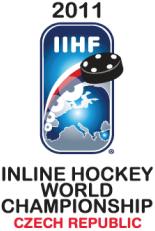PARDUBICE – For some athletes, inline hockey is their main sport, while for others it’s the best activity to bridge the ice hockey summer break.
The IIHF InLine Hockey World Championship features players of either type from all parts of the world.
For Fredrik Skoog, who led Sweden to four gold, two silver and two bronze medals, inline hockey is not only a sport in its own, but he also calls it “the best practice for ice hockey players”.
“Many players don’t compete for five months after the playoffs,” the 36-year-old from Karlstad says. “They just go to the gym. Our best inline players are ice hockey players, who make a living out of ice hockey and want to remain in shape for the next season.”
And that’s what several players do. They play some games in an inline hockey league in summer, and some of them even make it to the various national teams that compete for the medals in Pardubice right now.
While some people try to stay away from hockey in the summer months, Skoog is not afraid that athletes could have a burnout, and he thinks players will improve their skills by practising on inline skates during summer.
“In Sweden they have one game per week and one practice per week, and in many other countries it’s the same,” Skoog says, “so it shouldn’t be too much.”
Most inline representatives from the various countries from the United States to Finland and Australia voiced their agreement, during a presentation Skoog held on the day off.
But inline hockey is not simply ice hockey on inline skates and a different surface. It has its differences also because of the relatively limited amount of body contact.
That makes it even more ideal for ice hockey players because they can focus on other skills.
“You have more puck possession and stickhandling. You’re training your muscles and there’s less risk of injury because it’s not a hitting sport,” explains Skoog, who’s coaching a junior ice hockey team in the winter season.
“Inline hockey is a sport that favours technical players and good skaters. The referees have to do an important job against hooking and slashing.”
Dan Brennan, Manager of USA Hockey’s Ice & Inline Coaching Education Program, sees advantages not only for athletes, but also in other aspects, such as facility operations.
“Many arena owners also want to have something going on in summer when they don’t have ice because they’d lose money,” Brennan says about the situation in the United States and especially in the state inline hockey is most popular, California. “Like this they can rent out the floor during summer while they don’t have ice.”
Skoog sees room for improvement especially when it comes to recognition for the sport in ice hockey circles, because lots of possible candidates are not allowed to play for his team.
“Many ice hockey clubs don’t want to release players under contract to let them play inline hockey,” Skoog says. “Many players would like to participate in the IIHF InLine Hockey World Championship, but they are not allowed to.”
Challenge against Slovenia
Skoog has less stars in his roster than in some of the other years in Pardubice, and the third-place finish in its group is less than what many people expected from the Swedes, who have medalled nine years in a row.
Today Sweden will need to defeat Slovenia in the quarter-finals to remain in medal contention. While the Swedes have been the favourite in the past, and Slovenia usually the losing team in the quarters, fans can expect an interesting clash.
Slovenia has become kind of a dark horse after wins against Canada and Slovakia, and a tight loss against reigning champion USA.
“We’re trying every year to make it to the semi-finals, but we need that last thing to make it, and this year we will try to make it again,” says Matic Kralj, one of the best goal getters at this event with five goals.
“We’re a small country. We don’t have many players, but we try to compete against these big teams and a couple of years it has worked well,” Kralj says. “We just need some more luck and to score goals to win a quarter-final.”
Final round starting on Thursday
While the Slovenes take on Sweden at 14:00, Finland will face Canada two hours later before leaving the stage for the two undefeated teams.
Home side Czech Republic plays Slovakia in a brotherly rivalry at 18:00 (live on CT4) before reigning champion United States concludes the quarter-finals with its game against Germany at 20:00.
Quarter-finals in Division I:
Austria vs. New Zealand 13:00
Croatia vs. Australia 15:00
Great Britain vs. Argentina 17:00
Hungary vs. South Africa 19:00
MARTIN MERK |







